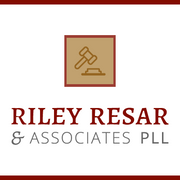What’s the Difference Between Chapter 7 & Chapter 13 Bankruptcy?

When dealing with bankruptcy law, you must be aware of which type of bankruptcy you can file. Individuals will generally declare either Chapter 7 or Chapter 13 bankruptcy. The below guide highlights the differences between these options to help you better understand what you qualify for and which is best for your situation.
Chapter 7 Bankruptcy
Chapter 7 Bankruptcy is also known as liquidation bankruptcy. To qualify for this option under bankruptcy law, you must not have enough disposable income for repayment to be possible. A trustee discharges the debt within three to five months by selling off your property.
 This allows you to get a fresh start, faster. However, you will lose most of your assets. Your trustee may even sell your home or automobile as part of the debt repayment process, but there are ways to keep them. Chapter 7 bankruptcy filings stay on a credit report for up to 10 years and do not cover student loans, mortgages, or auto loans.
This allows you to get a fresh start, faster. However, you will lose most of your assets. Your trustee may even sell your home or automobile as part of the debt repayment process, but there are ways to keep them. Chapter 7 bankruptcy filings stay on a credit report for up to 10 years and do not cover student loans, mortgages, or auto loans.
Chapter 13 Bankruptcy
Under bankruptcy law, you require a Chapter 13 filing when you have enough disposable income to repay debts. Rather than liquidating assets, the court reorganizes your obligations under a new repayment plan that typically takes three to five years to pay off.
While this allows you to keep the house, car, and other properties, you must make ongoing payments to the debts. Failure to keep up with these payments could result in the loss of any assets that were collateral for the new payment plan.
If you need help navigating bankruptcy law, contact Riley, Resar & Associates P.L.L., in Lorain, OH. With nearly 30 years of legal experience, this law firm offers flexible hours and dedicated, nonjudgmental representation to help you with your case. To learn more about their practice areas, visit them online. Call (440) 244-5214 to schedule a consultation.
About the Business
Have a question? Ask the experts!
Send your question

